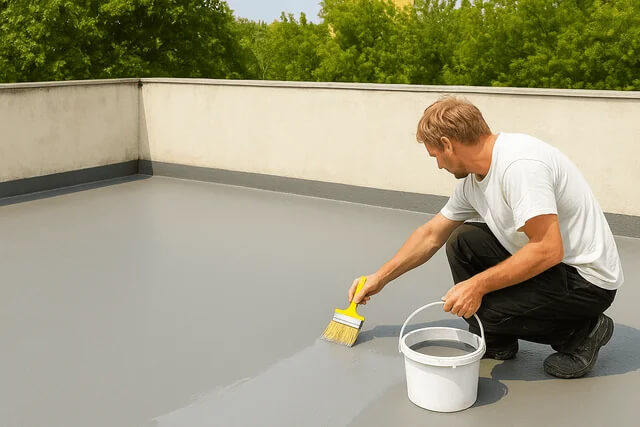Keeping your home safe from water damage starts from the ground up. A damp or leaking basement can silently wreak havoc on your property—weakening foundations, damaging interiors, and creating unhealthy living conditions. Investing in professional Basement waterproofing services ensures your home stays dry, structurally sound, and comfortable year-round.
In this comprehensive guide, we’ll explore everything homeowners need to know about basement waterproofing—from common problems and effective solutions to costs, maintenance tips, and expert recommendations.
Why Basement Waterproofing Matters
Water intrusion in basements isn’t just an aesthetic issue. It can compromise your home’s structure and affect your health.
The Hidden Dangers of Moisture
- Structural Damage: Constant water exposure can weaken walls, flooring, and foundations.
- Mold and Mildew: Even minor dampness creates a breeding ground for fungi, leading to allergies and respiratory problems.
- Electrical Hazards: Moist environments increase the risk of short circuits and appliance damage.
- Property Devaluation: A wet basement can significantly reduce your home’s resale value.
Recognizing the risks early and taking preventive action is critical to long-term home protection.
Signs Your Basement Needs Waterproofing
Detecting water issues before they escalate can save thousands in repairs. Watch for these warning signs:
- Damp or musty odors.
- Water stains or discoloration on walls and ceilings.
- Cracks in foundation walls or floor slabs.
- Peeling paint or warped flooring.
- Efflorescence—white, powdery residue on masonry.
Even minor signs should prompt a professional inspection, as small leaks often indicate larger structural vulnerabilities.
Types of Basement Waterproofing Services
Professional basement waterproofing services offer several approaches to safeguard your home. Choosing the right method depends on the type of water problem, the structure of your home, and your budget.
1. Interior Waterproofing
This method prevents water from entering your basement by controlling moisture that seeps in through walls or floors. Techniques include:
- Sealants and Coatings: Applied to walls and floors to form a water-resistant barrier.
- Interior Drainage Systems: Channels water to a sump pump, which then safely diverts it outside.
- Dehumidifiers: Reduce humidity levels and prevent condensation buildup.
2. Exterior Waterproofing
Exterior solutions focus on stopping water before it reaches your foundation. Common approaches are:
- Excavation and Waterproof Membranes: Removing soil around your foundation and applying protective layers.
- Drainage Systems: French drains or exterior drains redirect water away from the building.
- Protective Coatings: Specialized materials applied to exterior walls to prevent seepage.
3. Foundation Crack Repair
Cracks in walls or floors are primary water entry points. Repair techniques include epoxy injections, polyurethane foams, or sealing compounds to restore structural integrity.
Choosing the Right Basement Waterproofing Solution
Selecting the ideal approach involves assessing your basement’s specific conditions. Here’s what to consider:
- Type of Water Problem: Is it due to surface runoff, groundwater, or plumbing leaks?
- Basement Structure: Older homes may need different solutions than newer constructions.
- Budget and Maintenance: Some solutions require ongoing maintenance, while others provide long-term protection.
- Professional Expertise: Certified waterproofing contractors ensure proper installation and guarantee results.
Cost of Basement Waterproofing Services
The cost of waterproofing varies widely based on home size, severity of the issue, and chosen method. Here’s a rough breakdown:
| Service Type | Estimated Cost Range |
| Interior Sealants & Coatings | $2,000 – $6,000 |
| Interior Drainage System & Sump Pump | $4,000 – $10,000 |
| Exterior Waterproofing | $8,000 – $20,000 |
| Foundation Crack Repairs | $500 – $3,000 |
Investing upfront in quality waterproofing can prevent far higher costs associated with water damage repairs.
DIY vs. Professional Basement Waterproofing
While minor waterproofing tasks can be handled by homeowners, professional services provide several advantages:
- Accurate Assessment: Professionals identify hidden leaks and structural weaknesses.
- Advanced Solutions: Access to industrial-grade sealants, membranes, and pumps.
- Long-Term Guarantees: Licensed contractors often provide warranties for their work.
- Time and Safety: Avoids the risks of excavation, electrical work, and improper installation.
DIY methods, such as applying waterproof paints or installing basic sump pumps, are suitable only for minor issues.
Maintenance Tips for a Dry Basement
Waterproofing isn’t a one-time effort. Regular maintenance ensures continued protection.
1. Inspect Walls and Floors
Check for cracks, stains, or signs of moisture every season.
2. Clean Gutters and Downspouts
Ensure water is directed away from your foundation to prevent basement flooding.
3. Check Sump Pump Functionality
Test your sump pump annually, especially before rainy seasons, to confirm it works efficiently.
4. Maintain Proper Landscaping
Sloping the ground away from the house reduces water pooling near your foundation.
5. Control Humidity
Use dehumidifiers to maintain indoor humidity below 50%, minimizing mold growth.
Common Mistakes to Avoid
Even the best waterproofing can fail if homeowners make avoidable errors:
- Ignoring early warning signs of moisture.
- Choosing the cheapest solution without considering effectiveness.
- DIY installation of complex drainage or membrane systems.
- Failing to maintain gutters, pumps, or humidity control devices.
- Overlooking foundation cracks or plumbing leaks during inspection.
A professional assessment can prevent these common pitfalls.
FAQs About Basement Waterproofing Services
1. How often should a basement be waterproofed?
Typically, a professionally waterproofed basement lasts 10–20 years. Regular inspections are recommended every 2–3 years.
2. Can waterproofing fix mold problems?
Yes, waterproofing reduces moisture, which is essential for mold prevention. However, existing mold may require remediation.
3. Is basement waterproofing expensive?
Costs vary, but considering the damage water can cause, investing in waterproofing is cost-effective in the long run.
4. Can I live in my home during waterproofing?
Most interior waterproofing is safe with minimal disruption. Exterior waterproofing may require temporary relocation during excavation.
5. Are there eco-friendly waterproofing options?
Yes, some companies use non-toxic sealants and sustainable drainage solutions.
Emerging Trends in Basement Waterproofing
The industry is evolving with technology and innovation:
- Smart Sump Pumps: Automated pumps with alerts and battery backups for emergencies.
- Advanced Waterproof Coatings: Longer-lasting, crack-resistant, and environmentally friendly materials.
- Integrated Drainage Systems: Combining interior and exterior solutions for maximum protection.
- Moisture Sensors: Real-time monitoring of basement humidity and leaks for preventive maintenance.
These trends provide homeowners with smarter, more efficient, and reliable protection.
Why Investing in Basement Waterproofing Services is Worth It
Waterproofing is more than a home improvement—it’s an investment in safety, longevity, and peace of mind. Properly executed waterproofing protects your foundation, prevents costly repairs, and ensures a healthy living environment.
By choosing professional basement waterproofing services, you secure your home against the hidden dangers of moisture, mold, and structural deterioration. With the right combination of expertise, materials, and maintenance, a dry basement can be a lasting reality rather than a constant worry.





